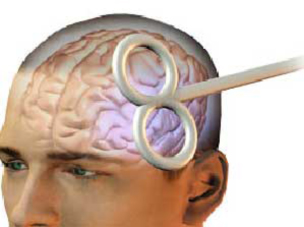Non-pharmacological approaches in dementia
 Non-pharmacological approaches show promise to reduce the risk of dementia, prevent cognitive decline and maintain nerve cell connectivity and should be viewed as a first-line approach to dementia
Non-pharmacological approaches show promise to reduce the risk of dementia, prevent cognitive decline and maintain nerve cell connectivity and should be viewed as a first-line approach to dementia
Current projects
Cognitive stimulation in dementia
There is growing evidence that early life education and a cognitively stimulating lifestyle can reduce the risk of dementia during ageing. This has led to the theory that we can build up “cognitive reserve” during our lifetime, which helps delay the effects of pathology on the brain. However, the cellular correlates of “cognitive reserve” have not been fully defined. In this study we are using environmental enrichment in animal models to investigate the cellular correlates of cognitive reserve and the association between environmental enrichment, AD pathology and memory deficits.
- Research Team: Professor James Vickers; Associate Professor Anna King; Associate Professor Alison Canty; Dr Bill Bennett, Kim Stuart (student), Barbora Fulapova (student)
- Objectives: The aim of this study is to investigate the effect of cognitive stimulation on the brain throughout the lifespan as well as determine whether type of cognitive stimulation, such as novelty is important. This project draws parallels to the Tasmanian Healthy Brain Project, a longitudinal prospective cohort study investigating the effects of late life cognitive stimulation on age-related cognitive decline and dementia.
- Collaborators
- Funding: Wicking Dementia Centre, University of Tasmania
Can transcranial magnetic stimulation induce neuroplasticity in AD?
Contact: Alison Canty
Project summary:
There is a growing interest in potential clinical benefits of repetitive transcranial magnetic stimulation (rTMS) to alter brain activity in neurodegenerative conditions such as Alzheimer’s disease (AD). Magnetic coils placed over the brain, can induce electrical activity in the underlying brain circuitry, and simulate neural activity. The underlying mechanisms driving the effects of the stimulation are not well understood. This project uses rodent sized magnetic coils, transgenic mice that develop amyloid pathology (as a model of Alzhiemer’s disease) and multiphoton microscopy to view changes in brain circuity in real time in response to low intensity magnetic simulation.
Using mice with fluorescently labelled neurons in the brain, we can see individual synapses, points of communication between cells, and watch them over hours, days and weeks in the living brain. Most synapses remain stable, but others appear and disappear over time and represent changes in connectivity of the neural circuits. Synaptic decline is hallmark pathology of dementia, where frank loss of synapses causes loss of function. This project seeks to understand synaptic changes during disease progression of dementia, and to explore rTMS as a therapeutic approach to restore lost connectivity in the brain.
Objectives:
We aim to determine how rTMS affects brain circuitry by observing synaptic changes in the brain circuitry of young adult and aged adult mice, and to determine if rTMS can be used therapeutically to boost neuroplasticity and improve cognition in a brain affected by amyloid plaques mouse models of dementia (APP/PS1).
Research team:
- A/Prof Alison Canty
- Dr Bill Bennett
- Barbora Fulopova
- Ross Langley
Outputs:
- Tang AD, Lowe AS, Garrett AR, Woodward R, Bennett W, Canty AJ, Garry MI, Hinder MR, Summers JJ, Gersner R, Rotenberg A, Thickbroom G, Walton J, Rodger J. 2016. Construction and Evaluation of Rodent-Specific rTMS Coils. Front Neural Circuits. Jun 30;10:47. doi: 10.3389/fncir.2016.00047.
- Fulopova, B. Characterisation of the axonal response to passive and environmentally induced neuroplasticity in an APP/PS1 model of Alzheimer's disease. 2020. PhD thesis.
- Tang AD, Bennett W, Hadrill C, Collins J, Fulopova B, Wills K, Bindoff A, Puri R, Garry MI, Hinder MR, Summers JJ, Rodger J, Canty AJ. 2018. Low intensity repetitive transcranial magnetic stimulation modulates skilled motor learning in adult mice. Sci Rep. Mar 5;8(1):4016. doi: 10.1038/s41598-018-22385-8